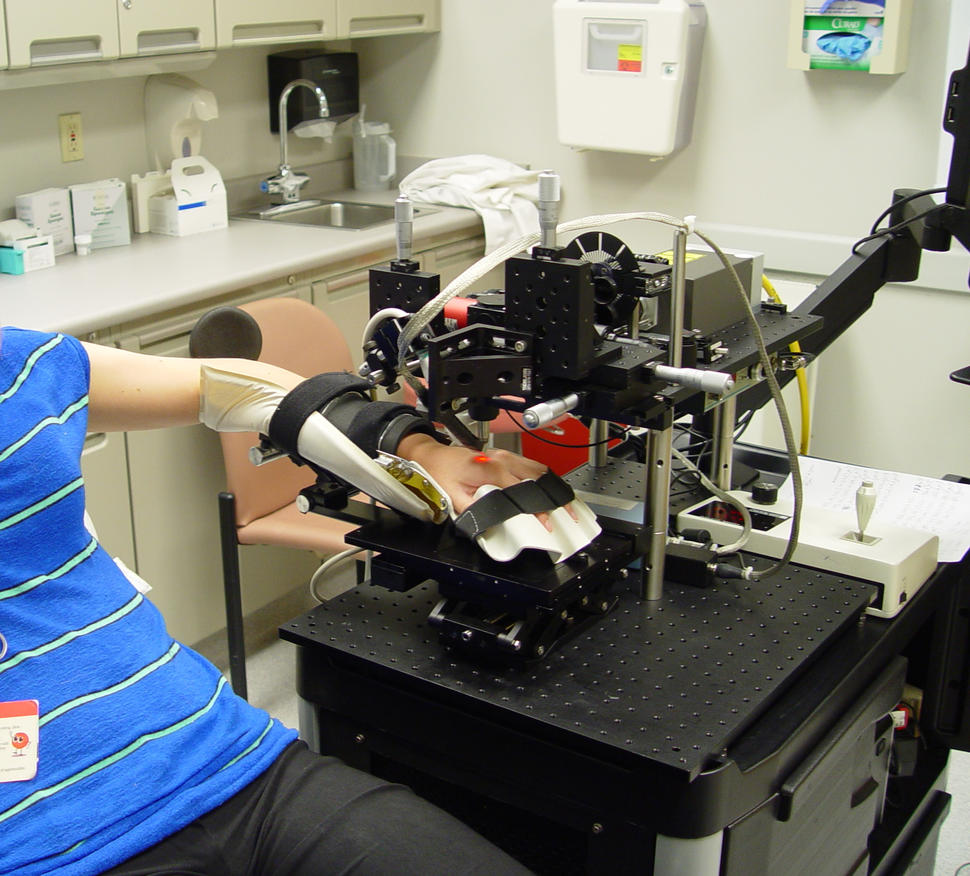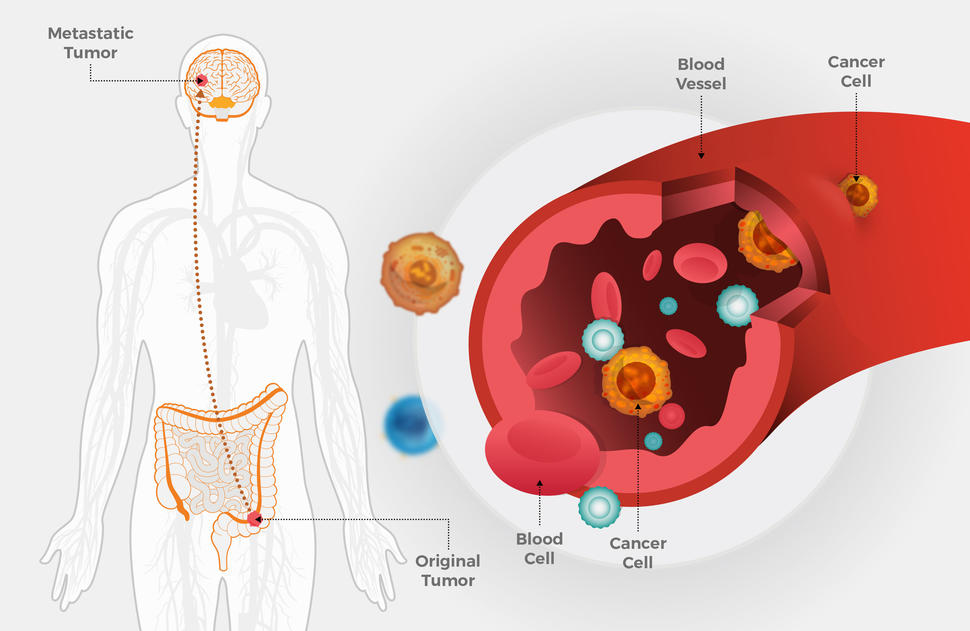| Cancer Information Highlights | | From the National Cancer Institute | | Updating you about cancer causes, prevention, screening, treatment, coping, and more | | | | New from NCI | | Device Detects and Kills Melanoma Cells in the Blood |  | | Scientists have developed a device that uses laser beams and sound waves to detect and kill melanoma cells traveling through the bloodstream. | | How Cancer Is Diagnosed |  | | If you have a symptom or a test result that suggests cancer, your doctor must find out whether it is due to cancer or some other cause. This updated page describes tests that are often used to help diagnose cancer. | Improving Cancer Immunotherapy by Overcoming the Problem of Exhausted T Cells
The ability of T cells to attack and kill cancer cells can fade, an event which researchers call exhaustion. Read about efforts to understand and overcome this stumbling block for immunotherapy. | Could a Form of Cell Death Enhance Cancer Immunotherapy?
Read about new research that suggests that producing a certain form of controlled cell death in or around tumor cells can help the immune system rid the body of cancer cells. | | Metastatic Colon and Rectal Cancers May Spread Early |  | | New study results suggest that many colon and rectal cancers are likely to have spread from the site where they started to other parts of the body long before the original tumor can be found by current tests. | Advances in Prostate Cancer Research
Most people diagnosed with prostate cancer will live a long time, but challenges remain in choosing the best treatments for those at all stages of the disease. Learn how NCI-funded researchers are working to advance our understanding of how to prevent, detect, and treat prostate cancer. | Advances in Melanoma and Other Skin Cancers Research
This page highlights some of the latest research on treatment for melanoma and other skin cancers, including advances that may soon translate into improved care, and research findings from recent studies.
| | PDQ Cancer Information Summary Updates | Unusual Cancers of Childhood Treatment
We updated many sections of our PDQ summary on unusual cancers of childhood, including the sections on multiple endocrine neoplasia syndromes, pheochromocytoma and paraganglioma, skin cancer, intraocular melanoma, and chordoma. | | | | | Also of Interest | Access to Experimental Cancer Drugs
Learn about the ways to gain access to experimental drugs. This page explains who might qualify for access, where to find more information, and how to talk with your doctor. | HPV and Cancer
Human papillomavirus (HPV) is a group of more than 200 viruses that can cause several cancers, including cervical, anal, and oropharyngeal cancers. Learn more about how HPV is spread, the different types of HPV, and vaccines to prevent it. | | | | | |
No comments:
Post a Comment